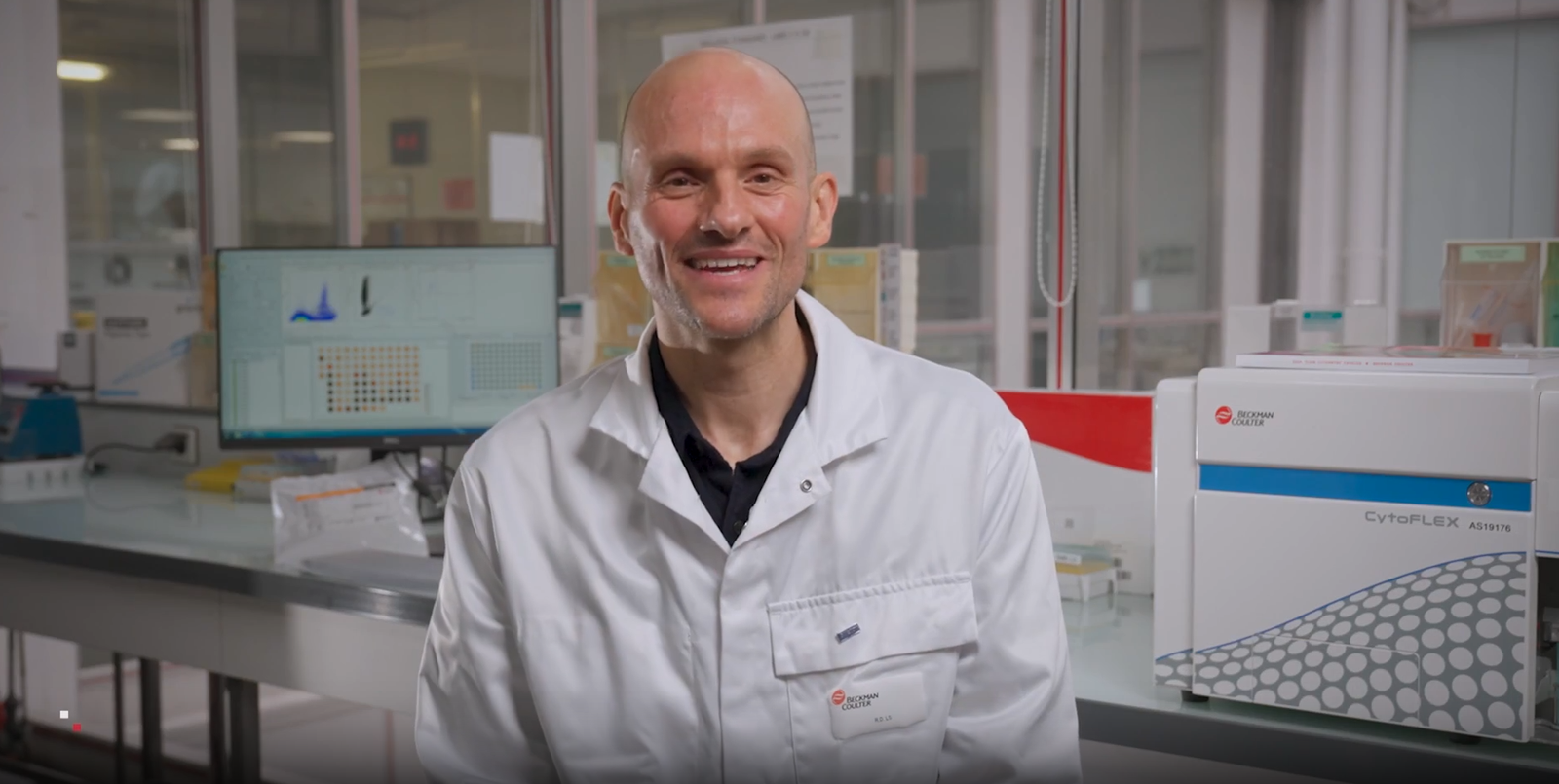Tuesday, 17 February 2026
Innovative Basophil Activation Test Aims to Democratize Food Allergy Research
Dr Jean-Marc Busnel, Principal Investigator and Senior Staff Research Scientist In the quest to improve food allergy research and reduce reliance on risky diagnostic procedures like the Oral Food Challenge…

Dr Jean-Marc Busnel, Principal Investigator and Senior Staff Research Scientist
In the quest to improve food allergy research and reduce reliance on risky diagnostic procedures like the Oral Food Challenge (OFC), Beckman Coulter Life Sciences has introduced a next-generation Basophil Activation Test (BAT) designed exclusively for research use. Spearheaded by Dr. Jean-Marc Busnel, Principal Investigator and Senior Staff Research Scientist, this innovative, streamlined BAT platform holds the potential to bring high-precision, in-vitro allergy assessment tools to a broader scientific community. Backed by a FARE Innovation Award, the project reflects Beckman Coulter Life Sciences’ commitment to empowering translational research through cutting-edge technology. In this exclusive interview with NUFFOODS Spectrum, Dr Busnel shares how this research-use-only assay could transform food allergy studies, facilitate safer and more scalable research trials, and open the door to future therapeutic breakthroughs.
What inspired the development of the Next-Generation Basophil Activation Test, and how does it address the key limitations of current food allergy testing methods like the Oral Food Challenge (OFC)?
The increasing evidence of the valuable insights provided by the basophil activation test (BAT), alongside the observation that only expert laboratories and/or long-term advocates are routinely utilising it, triggered our willingness to develop a streamlined approach to BAT. This development aims to democratise its use across the broader allergy community.
Can you explain how the BAT works on a technical level and what sets it apart from existing in vitro allergy testing solutions?
The BAT is a whole blood-based functional flow cytometry assay that enables the in vitro assessment of potential IgE-mediated reactivity in a given blood specimen against various allergenic sources. Potential allergenic sources for example include food and pollen extracts, hymenoptera venoms, and certain drugs. As very accurately coined(Basophil activation test: food challenge in a test tube or specialist research tool? – Santos – 2016 – Clinical and Translational Allergy – Wiley Online Library) in the past by Profs. Alexandra Santos and Gideon Lack in the field of food allergy, it could sometimes be pictured as “a food challenge in a test tube”
How might this new test influence the future of food allergy research and the development of new treatments or therapeutics?
The difficulty of implementing oral food challenges in research trials is often viewed as a major bottleneck in advancing food allergy research. In this context, given that BAT is one of the most promising in vitro biomarker for predicting the outcomes of oral food challenges, a broader use of this assay could contribute to accelerating answers in food allergy research.
What role did the FARE Innovation Award play in bringing this test to life, and how important are such partnerships in advancing diagnostic innovation?
The FARE award was instrumental in accelerating and deepening our work on the topic. Although we had been working on a streamlined BAT for several years, this award has enabled us to explore the feasibility of a miniaturised and parallelised approach to our streamlined BAT concept.
What are the next steps for this test in terms of regulatory progress, clinical validation, or potential transition from research use to broader clinical application?
This assay is approved for research use only and as we conduct additional studies and gather more feedback on both tube-based and plate-based next-generation BAT assays, we will be better positioned to identify the optimal format for application usage.
How does this innovation reflect Beckman Coulter Life Sciences’ broader mission to improve research outcomes through scientific and technological advancement?
By integrating technological advancements with translational research initiatives that involve collaborations with leading clinical institutions, we synergise resources and expertise to gather valuable insights and open new perspectives through research. This has the potential to lead to new treatment or prevention methods for a person dealing with food allergens, all without the side effects that come with oral food challenges.
Shraddha Warde
shraddha.warde@mmactiv.com
Technology
Carlsberg Launches AI-Crafted Lunar New Year Packaging
Feb 17, 2026 | Beverages
FAO Experts Assess Risk of Antimicrobial Resistance Spreading via Food Loss and Waste
Feb 17, 2026 | Sustainability
Setting the Standard for Sustainable Ingredients
Feb 16, 2026 | Ingredients
Food Testing
Redefining Trust in Organic Foods through Independent Testing
Feb 13, 2026 | Food Safety and Testing
AFNOR International Eyes Global Food Safety Growth with HACCP Group Takeover
Feb 04, 2026 | Australia
More Popular
Cerealto Sells Pasta Unit to Specialist Player Cerealis
Feb 17, 2026 | Company News
New Nestlé Vital nutritional drink targets rising demand for healthy-ageing solutions
Feb 17, 2026 | Company News
Carlsberg Launches AI-Crafted Lunar New Year Packaging
Feb 17, 2026 | Beverages






